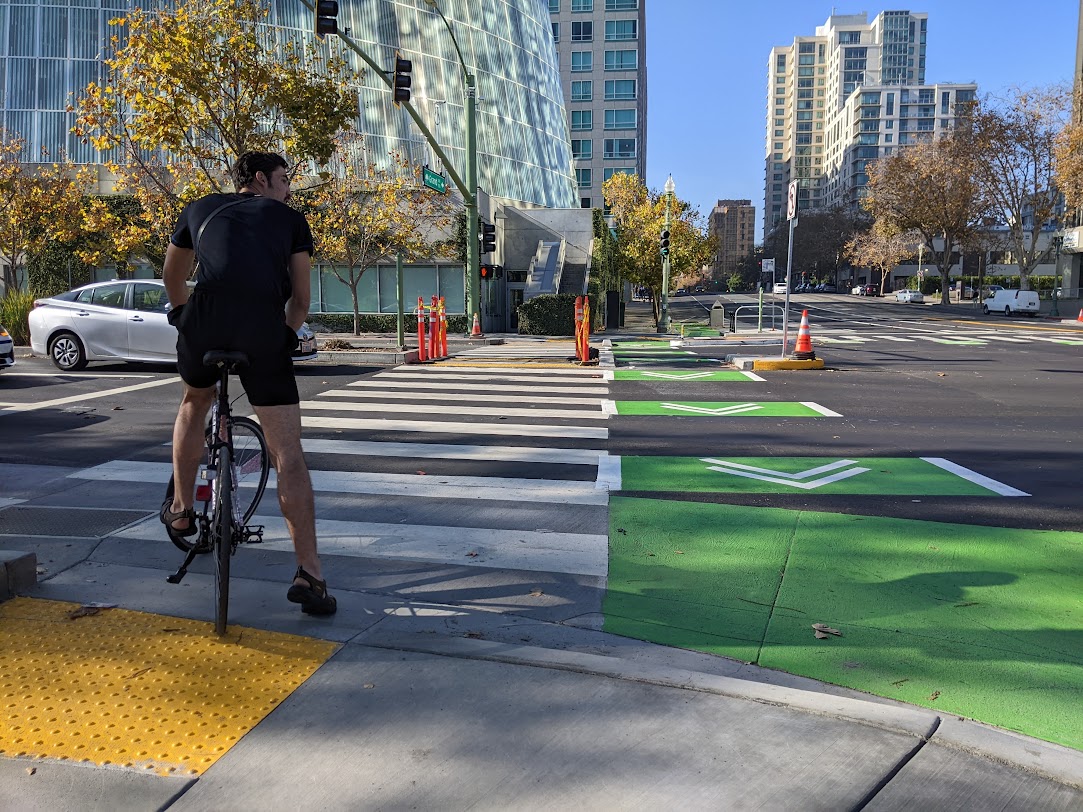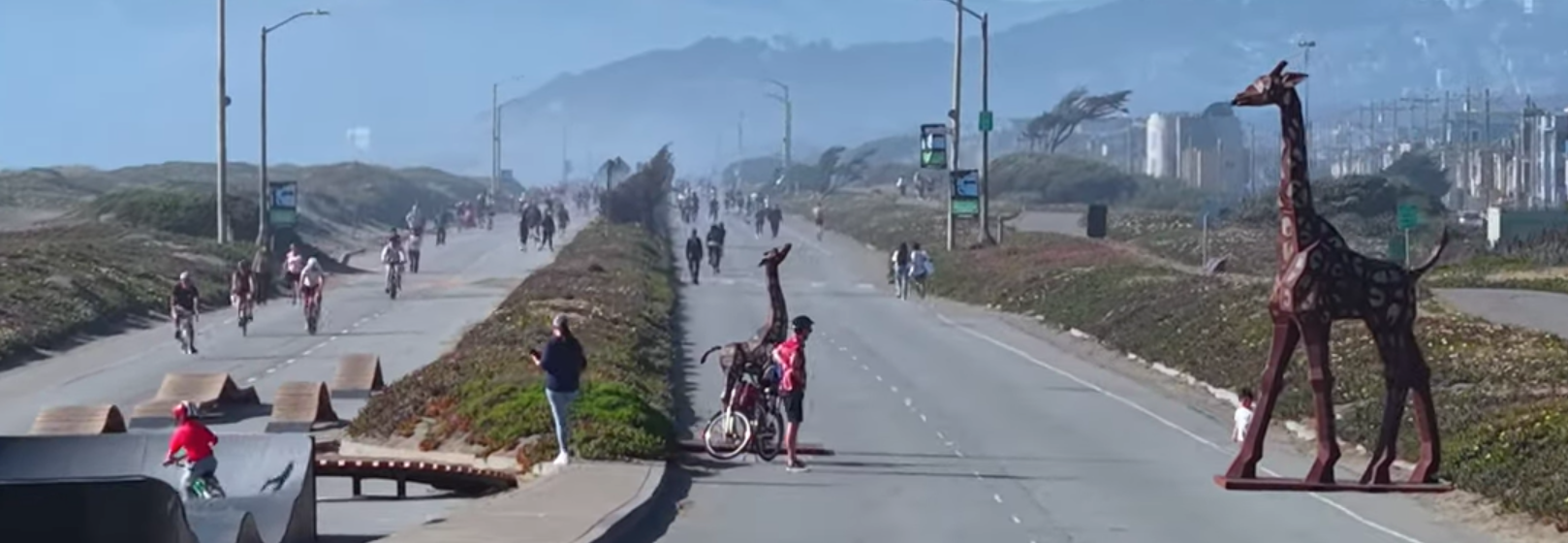This week we're tracking some of the bills that got left out of last week's too-long legislative update. These bills relate to transportation funding, climate change, and urban planning.
PLANNING
Eliminating Parking Minimums: A.B. 744 from Ed Chau (D-Monterey Park) would require a city or county to eliminate minimum parking requirements under certain circumstances, upon request by the developer. Special circumstances include housing near a major transit stop or that serves seniors or people with special needs, since fewer residents of those types of housing are likely to be drivers.
It's a first step towards eliminating minimum parking requirements, which is one of Professor Donald Shoup's basic prescriptions for fixing parking and congestion issues (See The Trouble With Minimum Parking Requirements [PDF], a paper he wrote way back in 1999). This bill would only apply if the developer requests an exemption, so it would be a market-driven solution, as it's fair to assume that developers will want to build parking if the market demands it.
For some reason, the California chapter of the American Planning Association, although officially in support of the bill, has suggested that developers should first produce a parking study, which is a real head scratcher. Why not just support the elimination of minimum parking requirements everywhere and be done with it? Developers will still build however many parking spots they think would be needed to sell units, but if they aren't required to build a minimum number they can save costs for everybody, including future tenants. If there's a fault with this bill, it's that it's too timid.
More bills after the jump.
CAP-AND-TRADE FUNDS
Transit and Intercity Rail: California is heading into the budget negotiation season, and a hot topic is the question of how best to spend funds in the Greenhouse Gas Reduction Fund, which come from California's cap-and-trade system. As predicted, it's turning out to be a huge source of new funding.
Although a formula for allocating it was agreed on last year, adjustments are already being sought.
S.B. 9, from Senator Jim Beall (D-San Jose), seeks to change the focus of the portion that goes to the Transit and Intercity Rail program. That program receives ten percent of the Greenhouse Gas Reduction Fund, which conservative estimates are putting at $200 million for this year.
Beall is seeking to limit eligibility for these funds to large capital projects that cost $100 million or more. His bill would also eliminate transit operations from eligibility under this program. That means that service expansions that could improve existing transit would not be able to apply for funding from this pot of money.
Beall's argument is that large-scale transit expansion projects are more likely to produce greenhouse gas emissions because they encourage more people to switch to transit. But so do transit service improvements, and if done right they can be a lot less expensive. TransForm has taken an official “oppose unless amended” position on this bill, which has sailed through its committees and is waiting in Senate Appropriations.
CLIMATE CHANGE
Greenhouse Gas Emissions: A number of bills introduced this session seek to update and extend the greenhouse gas emissions targets in the 2006 Global Warming Solutions Act. There is plenty of overlap among them, so presumably they will eventually be combined or otherwise made to work together. Right now all of the following bills are waiting in their respective Appropriations Committees for hearings:
- A.B. 645 from Assemblymembers Das Williams (D-Carpinteria) and Anthony Rendon (D-Lakewood). Currently the California Renewables Portfolio Standard requires that at least a third of the total electricity consumed in the state be from renewable sources by 2020. This bill would increase that target to 50 percent by 2030.
- S.B. 350 has received more attention because it's authored by Senate President ProTem Kevin De León (D-Los Angeles), but it would establish the same target for renewable energy. It would also add targets to reduce petroleum use by half and double energy efficiency in buildings.
- S.B. 32 from Senator Fran Pavley (D-Agoura Hills), the author of California's Global Warming Solutions act, would set a statewide greenhouse gas reduction target that is 80 percent below 1990 levels by 2050. It also calls for unspecified interim targets for 2030 and 2040, to be determined by the Air Resources Board.
- A.B. 21 from Assemblymember Henry Perea (D-Fresno) takes a different approach to emission reduction targets. Instead of establishing specific ones now, this bill asks the Air Resources Board to develop targets and report to the Legislature by 2018. Presumably the information would be used at that time to inform bills setting new targets.
Climate Change Advisory Council: Assemblymember Bill Quirk (D-Hayward) originally introduced A.B. 33 to create new greenhouse gas emissions reductions targets. With all the other bills addressing that issue this session, it has been revised, and now seeks to create a Climate Change Advisory Council. This new council would establish consistent ways to quantify and measure greenhouse gas reductions and public health benefits of various state programs that seek to meet targets. The bill has passed its policy committees in the Assembly and is waiting in Appropriations.





